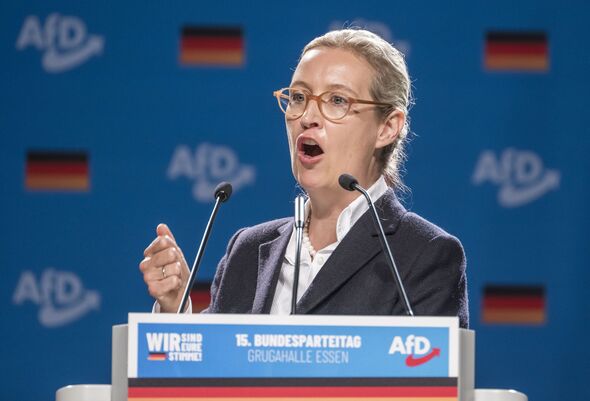Germans will head to the polls on Sunday to vote in the pivotal election as Alice Weidel’s Alternative for Germany (AfD) looks to become the parliament’s second-largest party.
The snap vote was called by current Chancellor Olaf Scholz, of the Social Democratic Party (SPD), at the end of last year when his coalition government fell apart.
The main six parties competing for seats in the Bundestag: Linke, SPD, Greens, Free Democrats (FDP), Christian Democratic Union (CDU), and AfD.
Recent polling puts the CDU coming in first with 30%, followed by Ms Weidel’s far-right party with 21% – an increase from 18% in December, as per Politico. CDU candidate Friedrich Merz is therefore expected to replace Mr Scholz as chancellor.
However, the German system makes it difficult for a single party to win enough seats to form a government alone. This means a coalition will need to be formed of parties that together hold more than 50% of the seats in the Bundestag.
After the February 23 vote, it may take several days for the final results to be announced, however exit polls expected to be shared at around 5pm GMT (6pm local time) in the evening will be fairly reliable.
The time it takes to count all the votes depends on how many people choose to do so by post – an increasingly popular option – and how well the smaller parties do.
These smaller parties – Linke, FDP, and the Sahra Wagenknecht Alliance (BSW) – are also expected to win around the 5% mark, the threshold to win any seats in the Bundestag.
Parties who win three or more districts also qualify for the Bundestg and are awarded seats based on their share of the votes.
Creating a coalition also increases the time it takes to form the government. It could take several months depending on how much the parties agree or disagree during talks that will begin immediately after the election.
Though AfD is not expected to win, and the CDU has already announced it is not willing to form a coalition with them to govern, it recently received an endorsement from the world’s richest man, Elon Musk. In late January, he made a surprise appearance via video link at a campaign event with 4,500 people in attendance.
The tech billionaire told Germans to be proud of their culture and not to focus on “past guilt”. He said: “It’s good to be proud of German culture, German values, and not to lose that in some sort of multiculturalism that dilutes everything.
“There is too much focus on past guilt, and we need to move beyond that. I’m very excited for the AfD, I think you’re really the best hope for Germany’s fight for a great future for Germany.”
Mr Musk has also been praising the party on his social media platform X, drawing fierce criticism from those who accused him of amplifying the far-right and interfering with the election.
